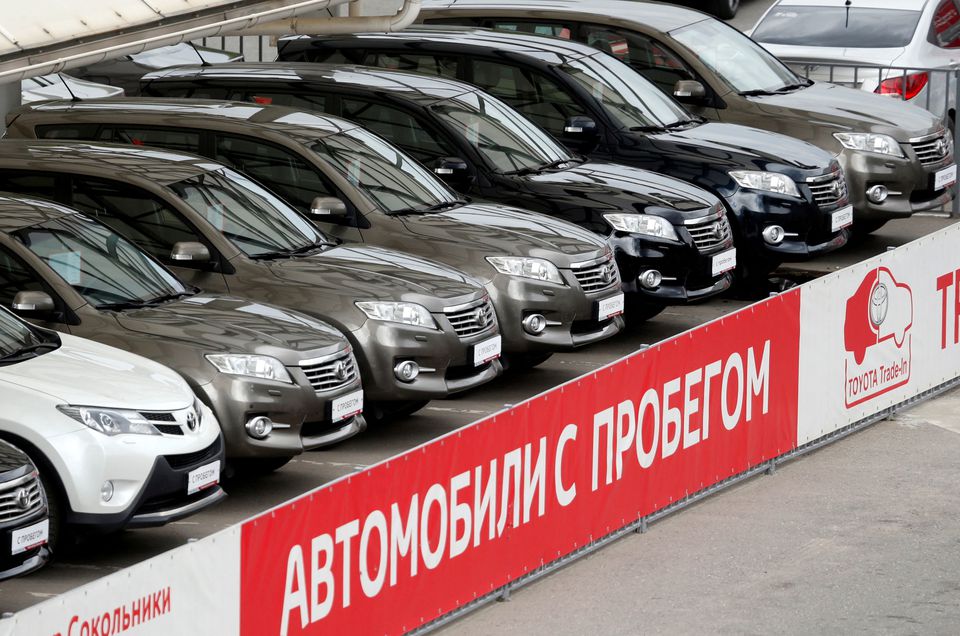Japan’s move to bar most used-car sales to Russia slammed the brakes on a trade nearing $2 billion annually that had boomed in the shadow of sanctions over Ukraine elsewhere, according to trade data and market participants.
In early August, Japan’s government banned exports of all but subcompact cars to Russia, cutting off a lucrative backchannel in trade in used Toyotas, Hondas and Nissans for a network of brokers and smaller ports, especially Fushiki, an export hub on the Sea of Japan.
While wiping out Russia’s biggest source of used cars, the sanctions have driven down prices for second-hand cars in Japan and left brokers scrambling to send vehicles to other regions, especially right-hand drive markets in New Zealand, Southeast Asia and Africa.
Russia’s demand for second-hand cars from Japan jumped sharply after global automakers, including Toyota, pulled back from operations following Moscow’s invasion of Ukraine.
By last year, with sanctions elsewhere tightening, Russia was buying more than a quarter of Japan’s used-car exports for an average price of almost $8,200. That was more than double the price in 2020, when Russia took about 15% of Japan’s used-car exports.
Those sales had been on track to top $1.9 billion for all of 2023 before Japan imposed its own tougher sanctions, trade data show.
More than half of the 303,000 used cars imported by Russia in the first eight months of the year came from Japan, according to figures from Russian analytical agency Autostat.
That compared to sales of 606,950 new cars of mainly Russian and Chinese brands over the same period, Autostat data showed.
Toyama-based SV Alliance, a two-year-old car export business, had been part of the wartime boom that sent an average of some 6,500 used-cars to Russia every month through July from Japan’s Fushiki. The port is about 800 km (500 miles) from Russia’s Vladivostok, within two day’s sailing for a cargo ship.
“Business is down about 70% and we’ve had to let a couple of people go because there isn’t enough work,” said Olesya Alekseeva, a logistics coordinator at SV Alliance.








